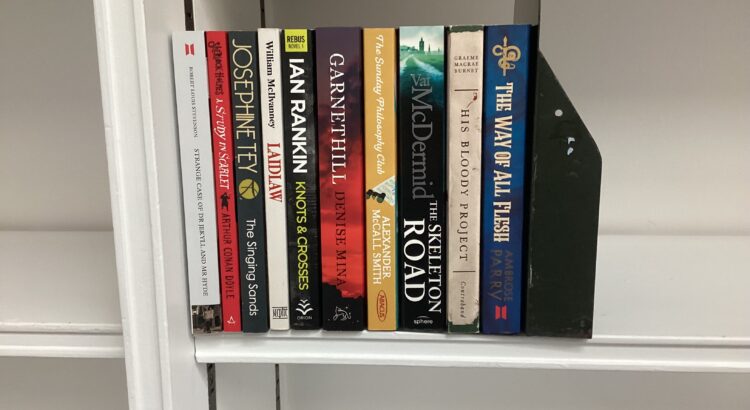Pictured above is our small shelf of Scottish crime books. Louise Welsh’s novel “The Cutting Room” is not included as our copy was out to a reader at the Library. The story of Scottish crime fiction in 11 books from its dark origins to the present day when Scottish crime fiction is read all around […]
Category: 19th-century items
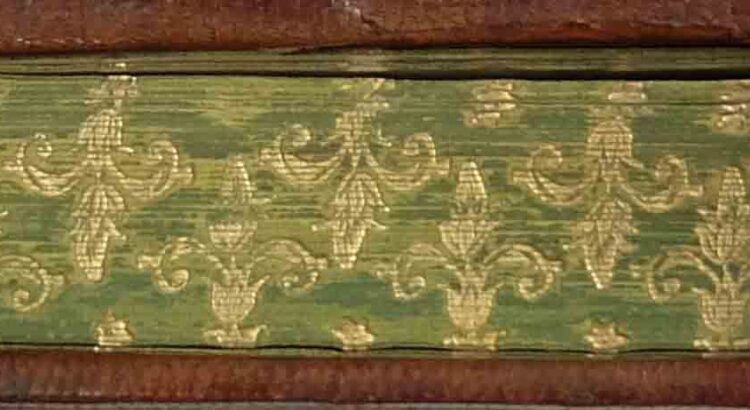
The Guild of Woman-Binders
Hello, my name is Lydia Ferguson and I am a postgraduate student at the University of Edinburgh studying History of Art, Theory, and Display. For the past three months I have been working as an intern at the National Library of Scotland in the Rare Books Division under the supervision of Rare Books Curator James Mitchell. During this time, I […]
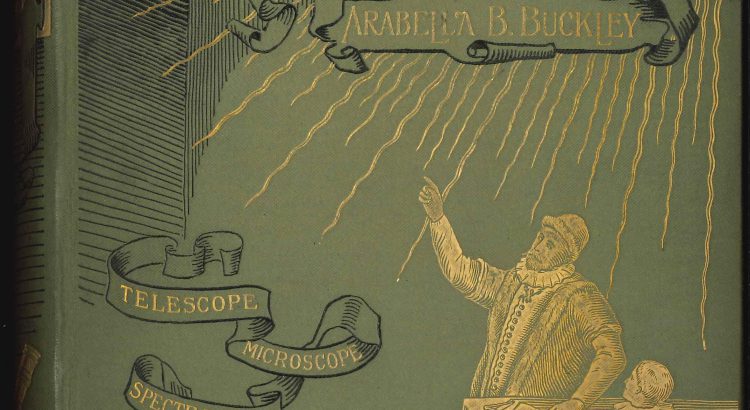
Arabella Buckley: female science writer and early supporter of Darwin
Women are still relatively under-represented in the fields of science, technology engineering and mathematics (STEM). Why is this so? Unfortunately, there are still negative stereotypes surrounding nerdy scientists, and there is a lack of encouragement and awareness for girls potentially interested in studying science subjects.
Marks, manicules and more: interactions with our collections
By Ash Charlton, collaborative PhD student on placement with Rare Books. Please note that some material in the collection and the language that describes them may be harmful. Read our statement on language you may encounter when using the collections. The National Library of Scotland holds a wealth of information, including a substantial collection of […]
The slavery debate and pamphlet wars
By Ash Charlton, collaborative PhD student on placement with Rare Books. Please note that some material in the collection and the language that describes them may be harmful. Read our statement on language you may encounter when using the collections. The National Library of Scotland holds a wealth of information, including a substantial collection of […]
Women & the Anti-slavery Movement
By Ash Charlton, collaborative PhD student on placement with Rare Books. Please note that some material in the collection and the language that describes them may be harmful. Read our statement on language you may encounter when using the collections. The National Library of Scotland holds a wealth of information, including a substantial collection of […]
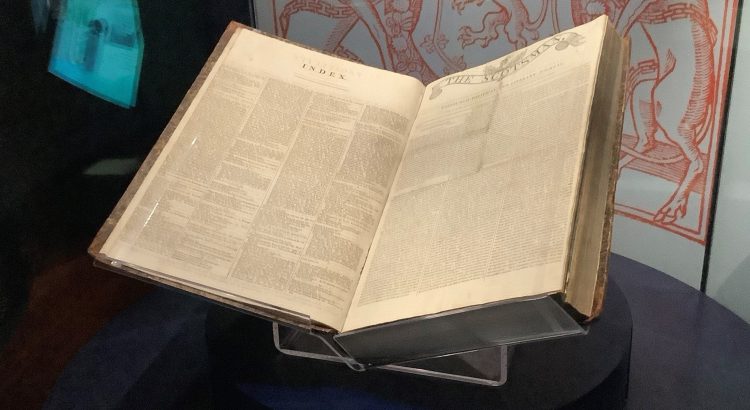
The first issues of ‘The Scotsman’ from 1817 have been added to our Treasures exhibition
The permanent and free ‘Treasures of the National Library’ exhibition at our main building in Edinburgh gives visitors the chance to see some of the most important items in our collections. We have recently refreshed the contents of the exhibition. From March 2023 you can see the first edition of Robert Burns’s ‘Poems’, printed at […]
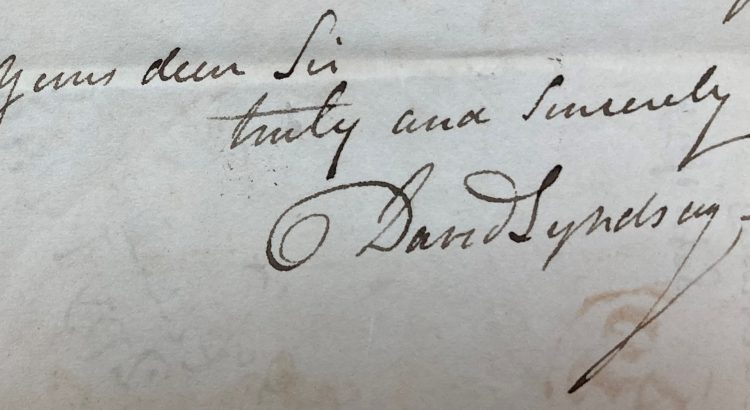
“I am always uncertain whether or not I see a real or an assumed signature”: David Lyndsay, Mary Diana Dods and Walter Sholto Douglas
David Lyndsay was the pseudonym of the author born Mary Diana Dods, and who from 1827 lived as Walter Sholto Douglas. Details about their life are patchy. It was the researcher Betty T. Bennett, editor of Mary Shelley’s letters who first made the connection between Dods, Lyndsay and Douglas in the 1980s. Bennett’s research at […]
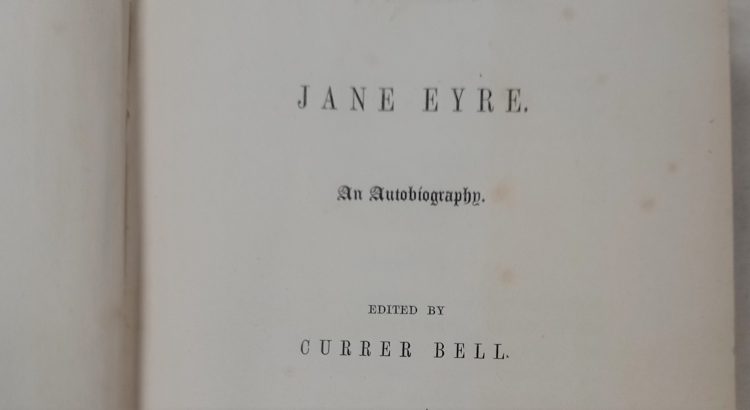
“Out of obscurity I came – to obscurity I can easily return”: Charlotte Brontë, Currer Bell and Jane Eyre
The use of pseudonyms by the Brontë sisters is perhaps one of the best known examples of the use of pen names in English literature. This post focusses on Charlotte Brontë (1816-1855), whose novel ‘Jane Eyre’ was published 175 years ago in October 1847. It was Charlotte who persuaded her sisters to submit their writing […]
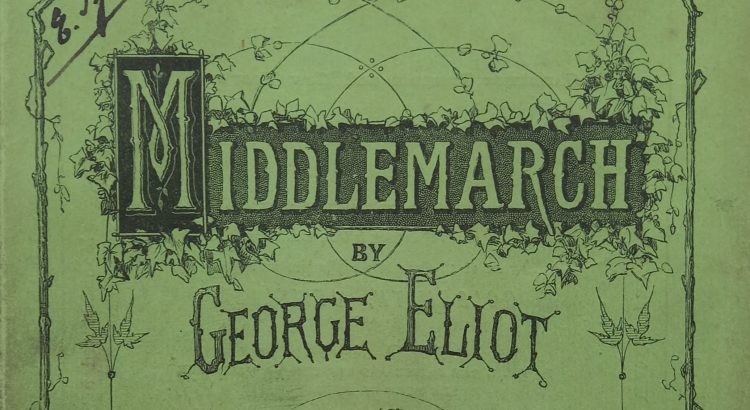
George Eliot and the disagreeables of reputation
“Whatever may be the success of my stories, I shall be resolute in preserving my incognito, having observed that a nom de plume secures all the advantages without the disagreeables of reputation.” George Eliot The author Mary Ann Evans (1819-1880) is better known as George Eliot. In 2020 when the ‘Reclaim Her Name’ project published […]
